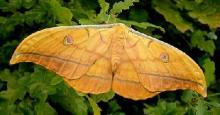| Query | Error | Affected | Num. rows | Took (ms) | Actions |
|---|
| SELECT `Content`.`id`, `Content`.`user_id`, `Content`.`last_edit_user_id`, `Content`.`post_date`, `Content`.`post_date_year`, `Content`.`post_date_month`, `Content`.`post_date_day`, `Content`.`title`, `Content`.`title_en`, `Content`.`content`, `Content`.`plain_content`, `Content`.`page_view`, `Content`.`flag`, `Content`.`mod_count`, `Content`.`created`, `Content`.`modified` FROM `contents` AS `Content` WHERE `id` = 148 LIMIT 1 | | 1 | 1 | 0 | |
| SELECT `Attachment`.`file_name`, `Attachment`.`dir`, `Attachment`.`model`, `Attachment`.`foreign_key` FROM `attachments` AS `Attachment` WHERE `file_name` <> 'default.jpg' AND `Attachment`.`foreign_key` = (148) | | 2 | 2 | 0 | |
| SELECT `ContentsRelatedItem`.`content`, `ContentsRelatedItem`.`related_item_id`, `ContentsRelatedItem`.`content_id` FROM `contents_related_items` AS `ContentsRelatedItem` WHERE `ContentsRelatedItem`.`content_id` = (148) | | 11 | 11 | 0 | |
| SELECT `RelatedItem`.`code`, `RelatedItem`.`name` FROM `related_items` AS `RelatedItem` WHERE `RelatedItem`.`id` = 1 | | 1 | 1 | 0 | |
| SELECT `RelatedItem`.`code`, `RelatedItem`.`name` FROM `related_items` AS `RelatedItem` WHERE `RelatedItem`.`id` = 2 | | 1 | 1 | 0 | |
| SELECT `RelatedItem`.`code`, `RelatedItem`.`name` FROM `related_items` AS `RelatedItem` WHERE `RelatedItem`.`id` = 4 | | 1 | 1 | 0 | |
| SELECT `RelatedItem`.`code`, `RelatedItem`.`name` FROM `related_items` AS `RelatedItem` WHERE `RelatedItem`.`id` = 6 | | 1 | 1 | 0 | |
| SELECT `RelatedItem`.`code`, `RelatedItem`.`name` FROM `related_items` AS `RelatedItem` WHERE `RelatedItem`.`id` = 7 | | 1 | 1 | 0 | |
| SELECT `RelatedItem`.`code`, `RelatedItem`.`name` FROM `related_items` AS `RelatedItem` WHERE `RelatedItem`.`id` = 8 | | 1 | 1 | 0 | |
| SELECT `RelatedItem`.`code`, `RelatedItem`.`name` FROM `related_items` AS `RelatedItem` WHERE `RelatedItem`.`id` = 9 | | 1 | 1 | 0 | |
| SELECT `RelatedItem`.`code`, `RelatedItem`.`name` FROM `related_items` AS `RelatedItem` WHERE `RelatedItem`.`id` = 9 | | 1 | 1 | 0 | |
| SELECT `RelatedItem`.`code`, `RelatedItem`.`name` FROM `related_items` AS `RelatedItem` WHERE `RelatedItem`.`id` = 9 | | 1 | 1 | 0 | |
| SELECT `RelatedItem`.`code`, `RelatedItem`.`name` FROM `related_items` AS `RelatedItem` WHERE `RelatedItem`.`id` = 11 | | 1 | 1 | 0 | |
| SELECT `RelatedItem`.`code`, `RelatedItem`.`name` FROM `related_items` AS `RelatedItem` WHERE `RelatedItem`.`id` = 12 | | 1 | 1 | 0 | |
| SELECT `ContentsTag`.`id`, `ContentsTag`.`tag_group_id`, `ContentsTag`.`mod_count`, `ContentsTag`.`tag_id`, `ContentsTag`.`content_id` FROM `contents_tags` AS `ContentsTag` WHERE `ContentsTag`.`content_id` = (148) | | 2 | 2 | 0 | |
| SELECT `Tag`.`name`, `Tag`.`comment`, `Tag`.`tag_group_id` FROM `tags` AS `Tag` WHERE `Tag`.`id` = 88 | | 1 | 1 | 0 | |
| SELECT `TagGroup`.`code`, `TagGroup`.`name` FROM `tag_groups` AS `TagGroup` WHERE `TagGroup`.`id` = 6 | | 1 | 1 | 0 | |
| SELECT `Tag`.`name`, `Tag`.`comment`, `Tag`.`tag_group_id` FROM `tags` AS `Tag` WHERE `Tag`.`id` = 175 | | 1 | 1 | 0 | |
| SELECT `TagGroup`.`code`, `TagGroup`.`name` FROM `tag_groups` AS `TagGroup` WHERE `TagGroup`.`id` = 7 | | 1 | 1 | 0 | |
| SELECT `RelatedItem`.`id`, `RelatedItem`.`code`, `RelatedItem`.`name`, `RelatedItem`.`created`, `RelatedItem`.`modified`, `RelatedItem`.`flag` FROM `related_items` AS `RelatedItem` WHERE `code` = 'function' LIMIT 1 | | 1 | 1 | 0 | |
| SELECT `Content`.`id`, `Content`.`title`, `Content`.`title_en` FROM `contents` AS `Content` WHERE id = (NULL) ORDER BY `id` desc | | 0 | 0 | 0 | |



















